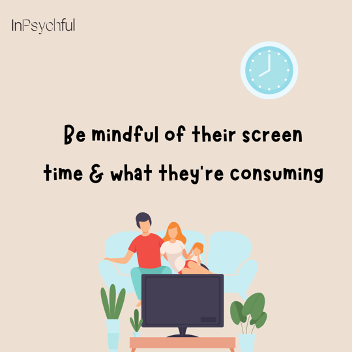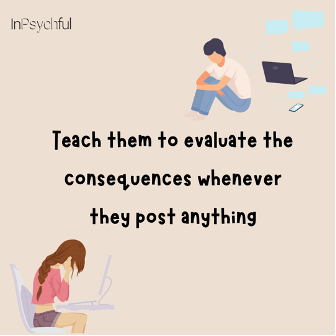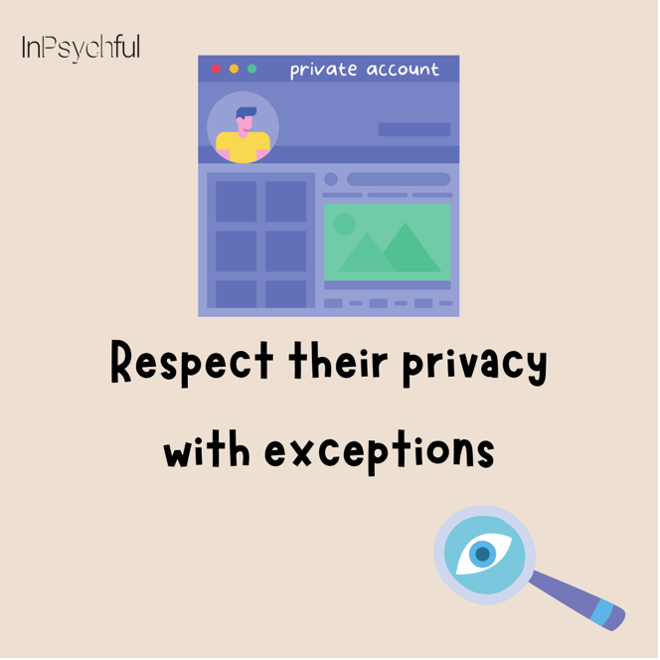In the past, when social media had not yet caught on. Most of our childhood was filled with playing catching during recess breaks and old-school card games like ‘Old Maid’ or ‘Donkey’. Owning a phone was a luxury at that time, much less a touch screen one. Fortunately or unfortunately, times have changed and the children of today are surrounded with technology. They have been exposed early into the digital scene hence, lured into the gimmicks of social media at a tender age. Although it may sound obvious, using social media without proper guidance is in fact, dangerous and risky for young ones. As parents, there is then the need to teach our children the importance of having a healthy relationship with social media. Below are some habits you can practice with you and your family!
It’s easy to say something but actually doing it is another. It’s probably true that we don’t always follow what we tell our children and end up doing the same thing. For instance, when we tell our children to refrain from using their phones during mealtimes, we should respect that boundary and not use it too. It is important then that we also explain to them the rationale as to why there are certain boundaries, so that they are not just blindly following. You could explain how mealtimes with family should be set aside to spend quality time having proper conversations without having other distractions brought to the table. Children learn best by modelling other people thus, if we want them to follow what we say, we have to lead by example and not allow for double standards. (McFarlane, 2017) You may be wondering then, what can you do to engage your child?
Here are some tips to get them off their phone and engage them meaningfully:
- Play board games or an activity that everyone would enjoy
- Tell them your own childhood stories
- Avoid talking to them about school or grades during this time
- Take them out with you if you have to run errands
- Or, ask them to help you run an errand (e.g., getting something from the provision store downstairs, get the family’s lunch as parents clean up the house, simple errands that is age appropriate)
- Listen to your child, even if they tell you about something that seems boring or doesn’t make sense
- Learn to be non-judgemental when they’re being vulnerable with you (Rao, 2020)
It is not uncommon to see toddlers in strollers clutching to a tablet or phone in hand, watching their favourite show or playing a phone game. This usually happens when parents are busy with their own errands or when they want to distract their kids from making too much noise. Research has shown that unstructured playtime is more precious for a young child’s developing brain compared to media use. Children younger than 2 years of age are more likely to learn and recall information from a live presentation than they are from a video.
Why is unstructured playtime such as allowing your children to spend time at community playgrounds healthy for them?
- Cognitive: able to interact and explore on playgrounds which hones their problem-solving skills, critical thinking and strategic planning
- Physical: they are able to exert energy & exercise which is beneficial to their physical health and may help improve balance, agility and hand-eye coordination
- Social: gives them an opportunity to practice their social skills to collaborate and engage each other to overcome challenges
- Sensory: they use most of their senses like sight, hearing, touch which helps brain development for your child (Playlsi, 2021)
However when they do have their screen time, for young children, it should be about choosing quality programmes and developing healthy screen habits. When they reach 2 years of age, they could have some screen time, such as programmes with music, movement and stories. By watching together, you can help your child understand what he or she is seeing and apply it in real life (Mayo Clinic, 2019).
Guidelines from the American Academy of Pediatrics (AAP) suggest that:
- Children under 18 months should not have screen time other than video-chatting
- Children aged 18 months to 2 years can watch or use high-quality programmes or apps if adults watch or play with them to help them understand what they’re seeing
- For children 2-5 years old, limit non-educational screen time to about 1 hour per weekday and 3 hours on the weekend
- For 6 years and older, encourage healthy habits and limit activities that include screens (MSF, 2018)
A study conducted by Media Development Authority (MDA), has found that children are going online and accessing social media platforms even before they reach primary school age. YouTube being the most commonly used social media platform for children six years and below, indicating that parents may be the ones helping them go online (McFarlane, 2017). Many of such platforms allow people to voice out their opinions openly, unfiltered. Children may look at such comments and think that it is alright to say certain things. They may not understand the gravity of posting negative comments and may just be doing it because everyone else is doing it. Moreover, posting any personal information such as one’s identification number is not safe. Hence, it is important that you protect your child from falling into such dangers of the media. Help them to understand what is appropriate online behaviour and be aware of the consequences. Teach them to think twice before they post up anything and if it might cause any damage.
Some ways you can teach your child to evaluate the consequences of social media:
- Get them to reflect on how they would like others to view them, then think critically about the online identities their creating
- Help them differentiate between private and personal information (ie. private: info that can be used to identify you like IC, phone number; personal: info that describes you but cannot identify you like your age, gender, favourite food)
- Reflect on the people they are chatting with online and what are they sharing with them. Warn them about talking to people they don’t know well enough
- Get them to consider what they are sharing online and whether it may be harmful to others and themselves (Knutson, 2019)
Especially for teenagers, social media has become their space to really express themselves and explore their identity. Some prefer that their parents do not follow their accounts or are in control of it as it may feel like their parents will be invading their privacy. However, if you do have a valid reason to search their phone be up front with them about this. They may not like it but they’ll trust and respect you for being transparent. Having a trusted adult follow them is one way to work around helping support their safety while preserving their autonomy (Boussi, 2019). As they grow older, it is important to respect their privacy and adjust the boundaries accordingly. Let them know their limits and your limits as well, doing this will help them know where you stand.
Social media whether we like it or not has integrated greatly into our social fabric and is here to stay. It is easy to feel overwhelmed as a parent and start blaming social media for negatively influencing your child’s life. However, it might help if you can create a balance of the use of technology and teaching them other means to engage themselves. Be clear about the boundaries you have set and be sure to be a good example to them. Perhaps, it’s even time to get out of your comfort zone and learn to embrace your child’s social media use. That way it might be easier for you to relate to your child and understand how social media might be impacting them, be it positively or negatively. You might be surprised that from that position you’ll have more influence and can help them make the best use of social media despite its negative effects. They might even start letting you follow them on their socials!
Camellia Wong, MA., Sara Chiang
More Articles:
I am Asian and Emotionally Distressed. Am I allowed to seek help for my problems?
References
Boussi, Y. (2019). 5 Ways To Help Your Teen Develop A Healthy Relationship To Social Media. Portland Family Counseling. https://portlandfamilycounseling.com/5-ways-to-help-your-teen-develop-a-healthy-relationship-to-social-media/.
Knutson, J. (2020, April 28). How to Teach Your Students to Think Before They Post. Common Sense Education. https://www.commonsense.org/education/articles/how-to-teach-your-students-to-think-before-they-post
McFarlane , K. (2017, December 11). 10 Ways To Cultivate Healthy Social Media Habits For Your Kids. Tatler Singapore. https://sg.asiatatler.com/society/tips-to-encourage-healthy-social-media-habits-for-kids.
Mayo Clinic. (2019, June 20). Screen time and children: How to guide your child. https://www.mayoclinic.org/healthy-lifestyle/childrens-health/in-depth/screen-time/art-20047952#:%7E:text=Developing%20screen%20time%20rules&text=If%20you%20introduce%20digital%20media,day%20of%20high%2Dquality%20programming.
MSF. (2018). Screen Time. https://www.babybonus.msf.gov.sg/parentingresources/web/Young-Children/YoungChildrenPlay_and_Learning/Screen_Time/Young_Children_Screen_Time?_afrLoop=53530696845163080&_afrWindowMode=0&_afrWindowId=null#%40%3F_afrWindowId%3Dnull%26_afrLoop%3D53530696845163080%26_afrWindowMode%3D0%26_adf.ctrl-state%3D1av6cy6ijr_4
Playlsi. (2021). Benefits of Community Playgrounds | Landscape Structures, Inc. Landscape Structures. https://www.playlsi.com/en/playground-planning-tools/resources/park-playgrounds/community-benefits/#:%7E:text=Top%2010%20Benefits%20of%20Community%20Playgrounds&text=Children%20gain%20self%2Dconfidence%20and,activity%20helps%20fight%20childhood%20obesity
Rao, G. (2020, June 8). How To Engage Your Child Meaningfully At Home [The Essential Guide]. Flintobox. https://flintobox.com/blog/parenting/ways-engage-children-indoors




